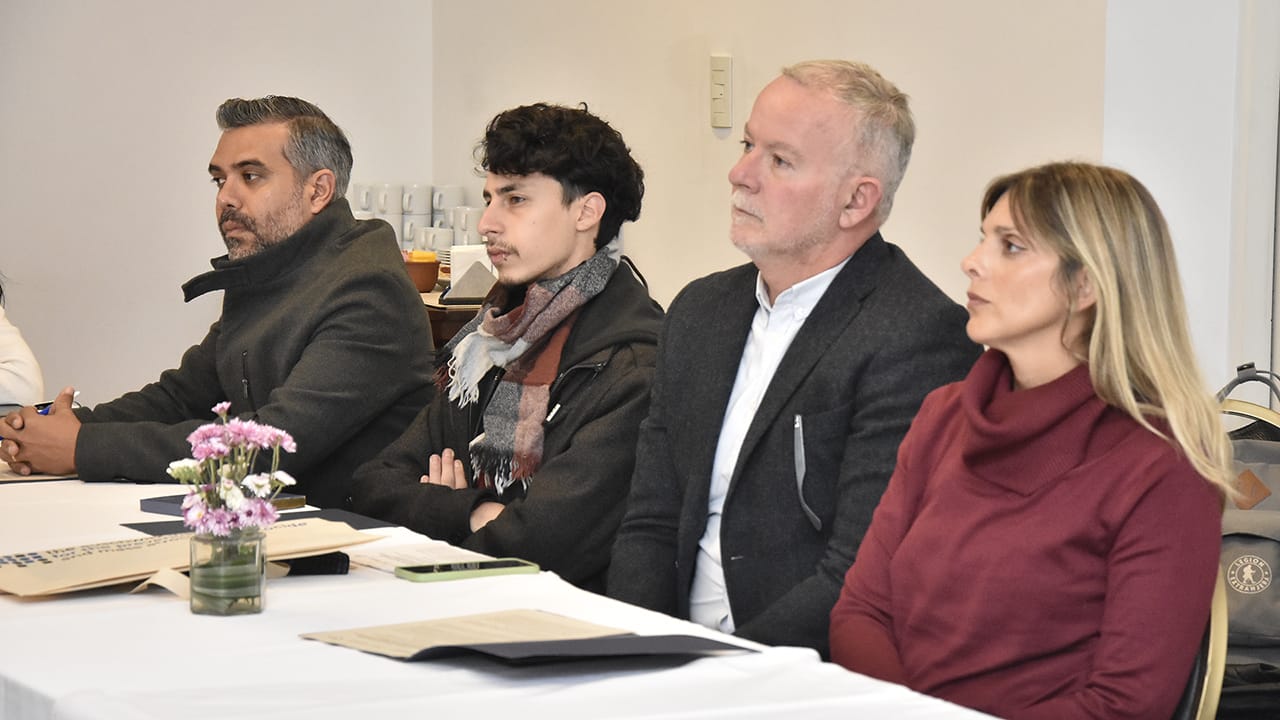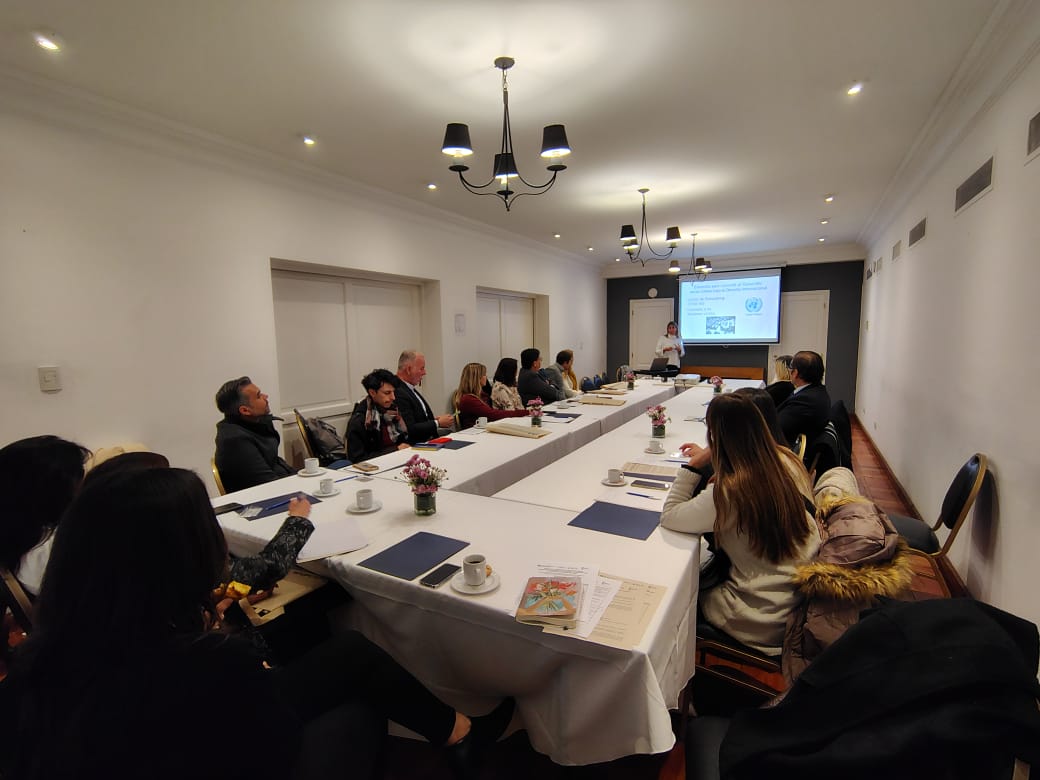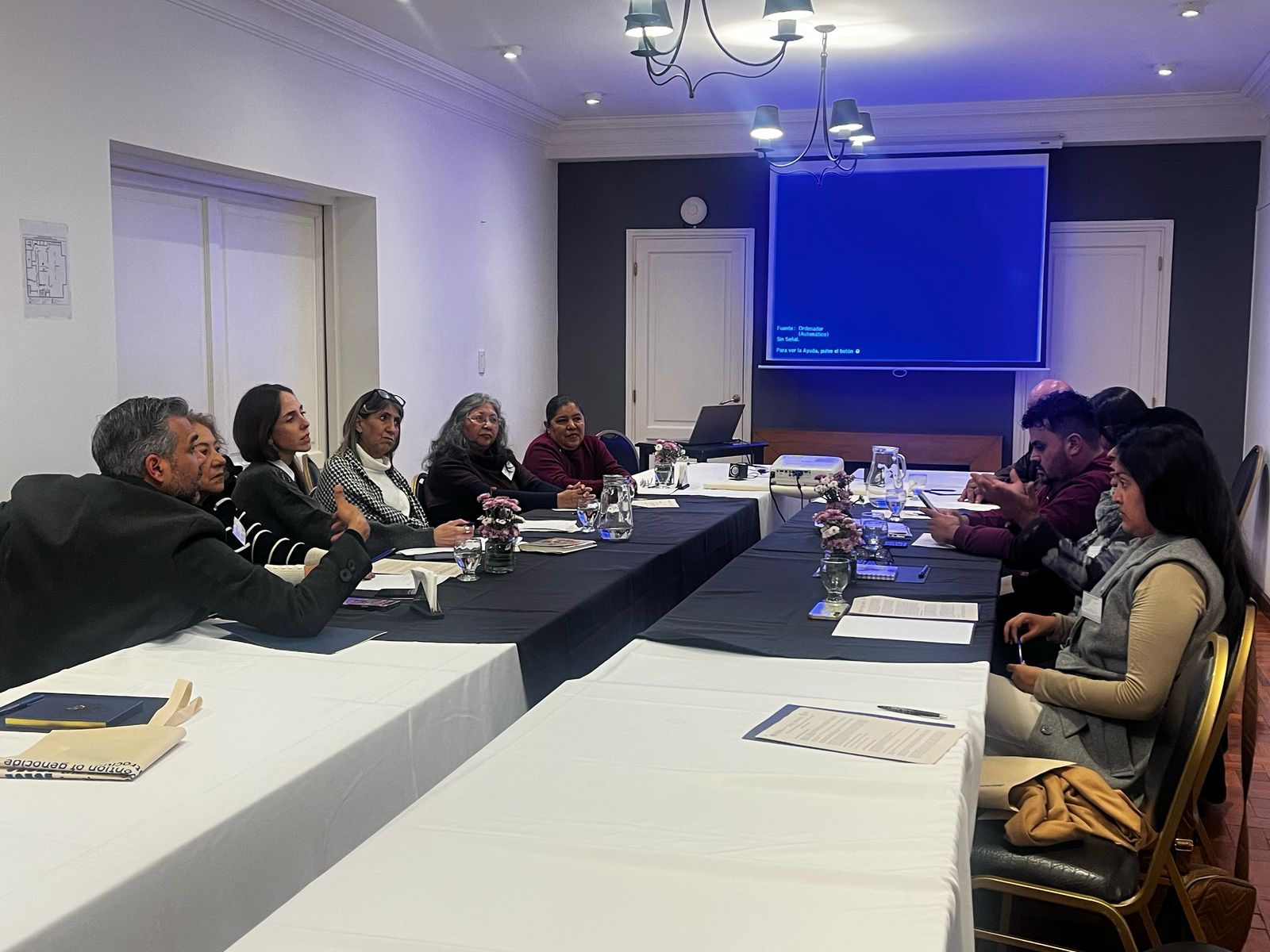To make a secure online donation, please click the button below


On June 24, the Latin American Program (LAP) of the Auschwitz Institute for the Prevention of Genocide and Mass Atrocities (AIPG) held a Conversation and Workshop on Irregular Migration and Genocide Prevention: Strengthening Institutional and Community Capacities for the Protection of Migrants in Salta, Argentina. The event was organized within the framework of the Bruno and Suzanne Scheidt Refugee Protection Program (SRPP) – Argentina Chapter.
The workshop created a space for dialogue focused on identifying and implementing key tools for prevention, protection, and coordinated response strategies for the migrant population in the province of Salta. The day began with a presentation by Eugenia Carbone, Director of the LAP, who spoke about the stages of the genocide process, the risk factors contributing to its development, atrocity prevention strategies, and how these can be applied in migration contexts.
This introduction laid the foundation for a discussion among representatives from the Ministry of Justice, the Office of Comprehensive Assistance to Refugees and Migrants, the Undersecretariat of Civil Registry and Legal Capacity of Persons, the Ombudsperson’s Office, and the Catholic University of Salta. Together, they emphasized the importance of developing preventive policies that incorporate indicators to detect potential violations of migrants’ rights.
In the afternoon, the event continued with an interactive dialogue involving representatives from migrant communities from Chile, Bolivia, Paraguay, Senegal, and Venezuela, as well as the Migrants Foundation and the Office of Comprehensive Assistance to Refugees and Migrants. This session aimed to explore perceptions, identify risks and vulnerabilities, and work toward the development of effective prevention strategies.
Throughout the day, participants underscored the importance of promoting intercultural citizenship—one that respects and preserves cultures of origin. They also highlighted education as a vital tool for peaceful coexistence, advocating for early integration efforts starting in childhood and the training of public officials in human rights.
The discussions in Salta underscored the complexity of addressing migration from a comprehensive, rights-based perspective—one grounded in prevention and the recognition of cultural diversity. Interventions throughout the event reinforced the value of intercultural education, the training of public officials, and the essential role of nongovernmental organizations in the inclusion and support of migrants.


El 24 de junio, el Programa para América Latina (LAP) del Instituto Auschwitz para la Prevención del Genocidio y Atrocidades Masivas (AIPG) realizó el Conversatorio y Taller sobre Migración irregular y Prevención de Genocidios: fortaleciendo capacidades institucionales y comunitarias para la protección de personas migrantes, en Salta Argentina. El evento fue organizado como parte del Programa de Protección a Refugiadxs Bruno y Suzanne Scheidt (SRPP) - Capítulo Argentina.
El taller facilitó un espacio de diálogo centrado en la identificación e implementación de herramientas clave para la prevención, protección y estrategias de respuesta coordinada para la población migrante en la provincia de Salta. La jornada comenzó con una presentación de Eugenia Carbone, directora del LAP, quien habló sobre las etapas del proceso de genocidio, los factores de riesgo que contribuyen a su desarrollo, las estrategias de prevención de atrocidades y cómo estas pueden aplicarse en contextos migratorios. Esta introducción sentó las bases para una discusión entre representantes del Ministerio de Justicia, la Oficina de Asistencia Integral a Refugiados y Migrantes, la Subsecretaría de Registro Civil y Capacidad Jurídica de las Personas, la Defensoría del Pueblo y la Universidad Católica de Salta. En conjunto, destacaron la importancia de desarrollar políticas preventivas que incorporen indicadores para detectar posibles vulneraciones de los derechos de las personas migrantes.
Por la tarde, el evento continuó con un diálogo interactivo que incluyó a representantes de comunidades migrantes de Chile, Bolivia, Paraguay, Senegal y Venezuela, así como de la Fundación de Migrantes y la Oficina de Asistencia Integral a Refugiados y Migrantes. Esta sesión tuvo como objetivo explorar percepciones, identificar riesgos y vulnerabilidades, y trabajar en el desarrollo de estrategias de prevención eficaces.
A lo largo del día, lxs participantes subrayaron la importancia de promover una ciudadanía intercultural que respete y preserve las culturas de origen. También destacaron la educación como una herramienta fundamental para la convivencia pacífica, abogando por esfuerzos de integración temprana desde la infancia y la formación de funcionarios públicos en derechos humanos.
Las discusiones en Salta resaltaron la complejidad de abordar la migración desde una perspectiva integral basada en el respeto a los derechos humanos, la prevención y el reconocimiento de la diversidad cultural. Las intervenciones señalaron el valor de la educación intercultural, la formación de funcionarixs y el rol de las organizaciones no gubernamentales como actores clave en la inclusión y el acompañamiento a personas migrantes.

